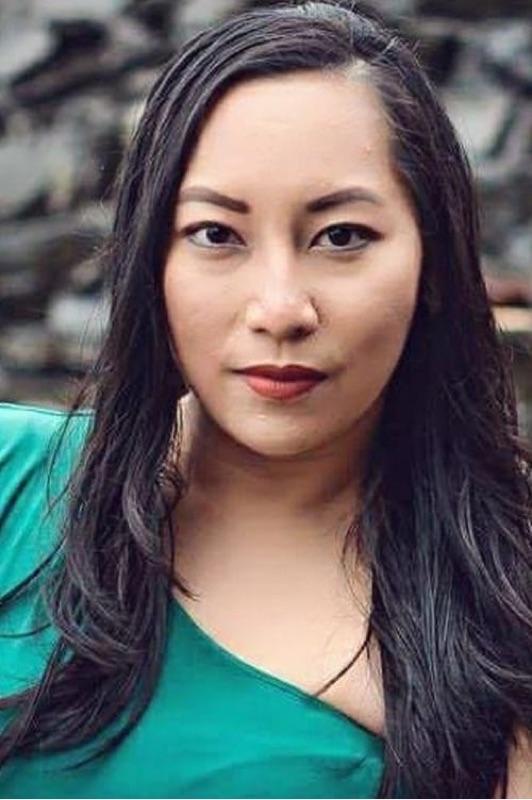How to Be an Ally: Actions We Can Take for a Stronger, Happier Workplace
Curated from: nextbigideaclub.com
Ideas, facts & insights covering these topics:
23 ideas
·1.24K reads
9
1
Explore the World's Best Ideas
Join today and uncover 100+ curated journeys from 50+ topics. Unlock access to our mobile app with extensive features.
There’s No Magic Wand That Creates DEI
Change happens one person at a time, one action at a time, one word at a time. It’s human nature to want quick solutions. Companies new to DEI (Diversity, Equity, and Inclusion often believe that one training will fix their problems, but that isn’t how change works. There is no training that magically fixes lack of diversity, inequity, and exclusion.
13
142 reads
We Can’t Rely On Technology To Create DEI
We have a tendency to believe that technology can fix most problems in our workplaces, but there is no technology that magically fixes this either. There are some technology solutions that address pieces of the diversity and inclusion puzzle, such as training that teaches specific solutions to creating more equitable systems, processes, language, and structures. However, the real change happens when each of us becomes part of the solution.
12
104 reads
Allyship Is Togetherness
That’s where allyship comes in: you and me, leading with empathy, changing how we do what we do, how we make people feel, working together to recognize and correct deep imbalances in opportunity that began centuries ago and continue today. As we reach a critical mass of allies, we create stronger and happier workplaces, companies, and industries, together.
12
86 reads
Allyship Is Empathy In Action
Allyship is really seeing the person next to us—and the person missing who maybe should be next to us—and first understanding what they’re going through, then helping them succeed and thrive with us. We use our power and influence to create positive change for our colleagues, friends, and neighbors. We recognize when someone isn’t in the room who should be, and we work to get them there.
11
65 reads
Allyship Is Active, Deliberate And Constant
Allyship is learning by reading, observing, listening, and hearing other people’s lived experiences. Good allies are always learning. Allyship is stepping up and stepping in as an advocate (even sometimes stepping back) so that our colleagues can thrive. Allyship is also leading the change, taking action to correct unfairness and injustice. We remove barriers so that everyone can rise and make sure that no one is unfairly held down.
The work of allyship is not passive—it is active. Allies are not bystanders; allies do the work.
11
52 reads
Allyship Can Take Many Forms
There are many terms that go hand-in-hand with allyship. Some say we need to go beyond allyship to being comrades, collaborators, co-conspirators, accomplices, and advocates. These are all forms of allyship, and each is important.
11
54 reads
… But It’s Not Charity
Allyship is not charity; allyship is being a good human. Allyship helps correct and repair centuries of people not being treated equally, create equal access and opportunity, build better companies, and establish healthier, happier workplaces and communities for us all.
11
49 reads
We All Harm People Without Intending To
People have been harmed throughout history due to oppression, systemic inequities, and cultural marginalization. Much of this harm continues today, and can surface through our individual words, actions, and non-actions . As allies, we must learn the ways we might be harming people without realizing it, acknowledge the impact of this harm, and correct our actions.
11
70 reads
We’re Biased And Biases Hurt
Biases are mental patterns or shortcuts that influence our perception about something, someone, or a situation. We learn them from our families, friends, teachers, media, and throughout our culture. While we might not be aware of our biases, they can perpetuate oppression, inequity, and marginalization.
11
68 reads
We Need To Stop Being Biased. And We Can
Because they are learned responses, biases can be un-learned. As allies, we must learn to interrupt our unconscious biases by making them visible and becoming deeply conscious of what we say and do. This requires some effort and time to unravel what has been ingrained in our consciousness over our lifetimes, but it gets easier over time.
11
48 reads
Bias-Weeding Is Everyday Work
Biases are the root of many microaggressions —little, everyday slights and insults—usually unintentional, that can make someone feel belittled, disrespected, unheard, unsafe, othered, tokenized, gaslighted, impeded, and/or like they don’t belong. The key is to develop our empathy skills and become intentional so that we recognize the microaggression forming and stop it before it happens.
11
46 reads
What If A Company Isn’t Ready For DEI?
Covert culture change is the best option when leadership or the company culture is not ready to address diversity, equity, and inclusion directly. We can still move the needle in several ways without using those three words at all. It can be taxing to work in a culture like this, but if we love our work and want to influence change, it’s still possible.
11
42 reads
Ways To Covertly Effect DEI
- Wellness programs can improve engagement levels, health, and well-being.
- Mindfulness and emotional intelligence programs can improve empathy skills.
- Leadership development programs can help people with underrepresented identities grow their careers and move into leadership, while improving engagement and belonging.
- Employee resource groups (ERGs) can provide a safe space for people with underrepresented identities to meet people like them and be themselves. Over time, ERGs can gain power and influence in numbers and help demand change in the organization.
11
30 reads
Effecting DEI Isn’t “All Or Nothing” Or “Zero To Sixty”
We can also improve diversity, equity, and inclusion by updating processes to be more competitive in our industry: for example, changing hiring and performance review practices to be more inclusive, or adopting inclusive design methods.
11
40 reads
You Become A Good Ally One Step At A Time
After George Floyd was murdered in 2020, many people realized the need to step up as allies. Many companies are newly focused on diversity, equity, and inclusion. And yet there are lots of questions about what each of us can do.
Here are 7 steps for taking action as an ally to correct marginalization and exclusion, and create a stronger, happier workplace as a result:
11
34 reads
7 Steps For Taking Action As An Ally
1) Learn, unlearn, and relearn.
Learn to recognize historical harm and its intergenerational impact, unlearn biases from history and cultural marginalization, and relearn from new perspectives.
11
45 reads
7 Steps For Taking Action As An Ally
2) Do no harm—understand and correct your biases.
Work to change your behaviors and actions to avoid unintentional harm.
11
38 reads
7 Steps For Taking Action As An Ally
3) Recognize and overcome microaggressions.
Develop awareness and empathy skills to identify and eliminate these toxic behaviors.
11
38 reads
7 Steps For Taking Action As An Ally
4) Advocate for people.
Step up and advocate in small, everyday ways that can make big differences in people’s lives.
11
44 reads
7 Steps For Taking Action As An Ally
5) Stand up for what’s right.
Intervene to stop microaggressions and support people who have been harmed.
11
41 reads
7 Steps For Taking Action As An Ally
6) Lead the change.
When you’re ready, take action to lead change in your work, on your team(s), and in your workplace.
11
47 reads
7 Steps For Taking Action As An Ally
7) Transform your organization, industry, and society.
Address biases and inequities in your company and in the broader world.
11
41 reads
Leading from the front is cliché.
I lead from the back to push you forward or be there to catch you. I lead from the side because Im your ally and here to serve you.
Leaders are accessible at all times.
JANNA CACHOLA
6
23 reads
IDEAS CURATED BY
CURATOR'S NOTE
What does it mean to be an ally in the workplace? Allyship in the workplace means using your personal privilege to support colleagues from historically marginalized communities. Allies wield their influence to amplify the voices and elevate the employee experience of their underrepresented coworkers. Don’t care for allies and DEI? The ideas that follow are as much about how to be an ally, as they are about how to be a better person.
“
Xarikleia 's ideas are part of this journey:
Learn more about corporateculture with this collection
How to synthesize information from multiple books
How to analyze a book
How to set reading goals
Related collections
Similar ideas
20 ideas
How To Be Weird: An Off-kilter Guide to Living Α One-of-a-Kind Life
nextbigideaclub.com
12 ideas
3 ideas
Read & Learn
20x Faster
without
deepstash
with
deepstash
with
deepstash
Personalized microlearning
—
100+ Learning Journeys
—
Access to 200,000+ ideas
—
Access to the mobile app
—
Unlimited idea saving
—
—
Unlimited history
—
—
Unlimited listening to ideas
—
—
Downloading & offline access
—
—
Supercharge your mind with one idea per day
Enter your email and spend 1 minute every day to learn something new.
I agree to receive email updates

